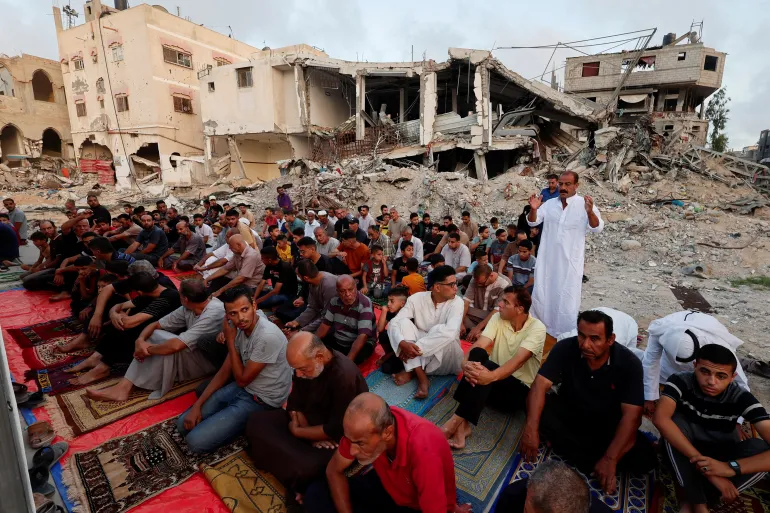
Palestinians are experiencing a somber Eid al-Adha amid continued Israeli military attacks on Gaza and stringent restrictions at Al-Aqsa Mosque in Jerusalem. The Muslim festival, which is traditionally a time of joy and sacrifice, is overshadowed by ongoing violence and significant humanitarian challenges.
In the Gaza Strip and the occupied West Bank, the atmosphere is bleak. In Gaza, where more than 37,000 Palestinians have been killed since the conflict began over eight months ago, families gathered amidst the rubble of their destroyed neighborhoods to pray. The devastation is widespread, with entire communities reduced to ruins. This Eid, hundreds of thousands of displaced Palestinian families find themselves in mourning, trying to find solace and hope amidst the destruction.

Despite the relentless aggression, Palestinians are making efforts to maintain a semblance of normalcy and bring happiness to their children. Many children are waking up to celebrate Eid without their parents, adding a layer of sorrow to what is usually a joyous occasion. The Government Media Office in Gaza stated that Israel is preventing the entry of sacrificial animals into the enclave, obstructing a significant part of the Eid al-Adha rituals. This blockade further exacerbates the difficulties faced by Gazans, who are already dealing with severe shortages of food, water, and medical supplies.
On Sunday, the Israeli army announced a “local, tactical pause” of military activity along a specific route from 8 am to 7 pm daily to allow more aid into Gaza via the Kerem Shalom crossing. However, the army emphasized that this pause does not signify a cessation of hostilities, as military operations would continue in the southern part of the enclave. This announcement has been met with skepticism and criticism. Far-right Israeli National Security Minister Itamar Ben-Gvir labeled the pause “delusional,” especially after a recent attack resulted in the deaths of ten Israeli soldiers, marking one of the deadliest days of the conflict for Israel.
In Jerusalem, Israeli forces imposed strict restrictions on Palestinians attempting to mark Eid al-Adha at the Al-Aqsa Mosque. Despite these measures, about 40,000 worshippers managed to attend prayers inside the mosque. However, many were forced to pray outside its gates after being denied entry. The Wafa news agency reported that Israeli forces also disrupted the movement of Palestinians in several areas across Ramallah in the occupied West Bank by setting up checkpoints and stopping vehicles.
The situation reflects the broader, ongoing struggles faced by Palestinians in their daily lives. The combination of military aggression, displacement, and restrictive measures during significant religious and cultural events underscores the severe impact of the conflict on the Palestinian community. The international community continues to call for a ceasefire and a resolution to the conflict, but the path to peace remains fraught with challenges.
As Palestinians mark Eid al-Adha, their resilience and hope shine through the bleak circumstances. Despite the hardships, they cling to their traditions and faith, finding strength in their community and heritage. The need for a comprehensive and just resolution to the conflict is more pressing than ever to ensure that future celebrations can be held in peace and prosperity.

















